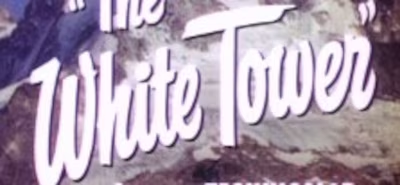Ted Tetzlaff

About
Biography
Biography
Talented cinematographer of lustrous black-and-white imagery who, after 20 years behind the lens in the 1930s and 40s, moved into the director's chair and showed a flair for suspense. Tetzlaff began as a lab and camera assistant before sharing cinematography credits on half a dozen minor films in 1926-27. He joined Columbia in 1928, working regularly with good contract directors Erle C. Kenton ("The Last Parade" 1931), Roy William Neill ("Behind Closed Doors" 1929), and the up-and-coming Frank Capra. Tetzlaff shot three films for Capra, starting with the enjoyable "The Power of the Press" (1928). He was prolific, too, lensing a dozen films in 1929 and eleven each in 1930 and 1931.
It was at Columbia that Tetzlaff first worked with rising star Carole Lombard, on loan from Paramount, on "Brief Moment" (1933) and "Lady by Choice" (1934). Late in 1934, he moved to Paramount, where he was soon reunited with Lombard, now a top name, for "Rumba" and the especially delightful romantic comedy "Hands Across the Table" (both 1935). Tetzlaff was now an 'A' budget cinematographer, and would shoot the glamorous comedienne in ten films including "The Princess Comes Across" (1936) and "True Confession" (1937). Lombard even took him with her when she was loaned out to other studios, and so Tetzlaff's glossy images enhanced Universal's landmark screwball "My Man Godfrey" (1936).
Tetzlaff continued at Paramount through 1941 before serving in WWII. Just before war service, he took a first shot at directing, but the Hollywood-set comedy, "World Premiere" (1941), despite some good ingredients, was more frantic than funny. He signed with RKO near the war's end and soon racked up one of his finest credits, one which would set a pattern for his best future work. Alfred Hitchcock's "Notorious" (1946) was a model collaboration, with sensuous low-key lighting mixing with fluid tracking, crane and POV shots to build a gripping web of intrigue.
Tetzlaff obviously learned from Hitchcock when he became a director for good: after treading water on several minor credits, he struck pay dirt with the spine-tingling film noir "The Window" (1949), about a boy fond of crying wolf who isn't believed when he actually witnesses a murder. Tetzlaff stayed with RKO into the early 50s and later free-lanced until 1959, working only as a director; his credits were all B-films or modestly budgeted A's, but the best (the mountain adventure "The White Tower" 1950 and "Terror on a Train" 1953, about defusing bombs) show the same admirably craftsmanlike qualities which marked his best work as a cinematographer.
Filmography
Director (Feature Film)
Cinematography (Feature Film)
Life Events
1926
First feature credits as cinematographer, "Atta Boy"; screen credit shared with William Reese and Blake Wagner
1926
Shot four films in collaboration with cinematographer Ernest Miller, "Sunshine of Paradise Alley", "Eager Lips", "The Ladybird" and "Ragtime"
1927
First solo credits as cinematographer, "Pitfalls of Passion" and "Polly of the Movies"
1933
First worked with actor Carole Lombard on the Columbia feature, "Brief Moment"
1938
Shot last of ten Carole Lombard pictures, "Fools for Scandal", made while on loan to Warner Bros.
1941
Directed a first feature film, "World Premiere", but otherwise kept working as a cinematographer
1942
Returned briefly to Columbia when he shot four films there
1944
Joined RKO; first film there, "The Enchanted Cottage" (1945) (date approximate)
1946
Last credit as cinematographer, "Notorious", an RKO film directed by Alfred Hitchcock
1947
Became a director full-time at RKO with "Riffraff"
1949
Directed his best-known feature film, "The Window", a hit at the box office in its day
1950
Left RKO and freelanced for his remaining few feature credits
1956
Was one of the five directors of the episodic travel documentary, "Seven Wonders of the World", shot in the widescreen process Cinerama
1956
Directed for the NBC/ABC TV anthology series, "Screen Director's Playhouse"; credited as Ted R. Tetzlaff (date approximate)
1959
Directed last film, "The Young Land"
1963
Excerpt Tetzlaff directed from "Seven Wonders of the World" used in the compilation documentary, "The Best of Cinerama"
Videos
Movie Clip












Trailer























